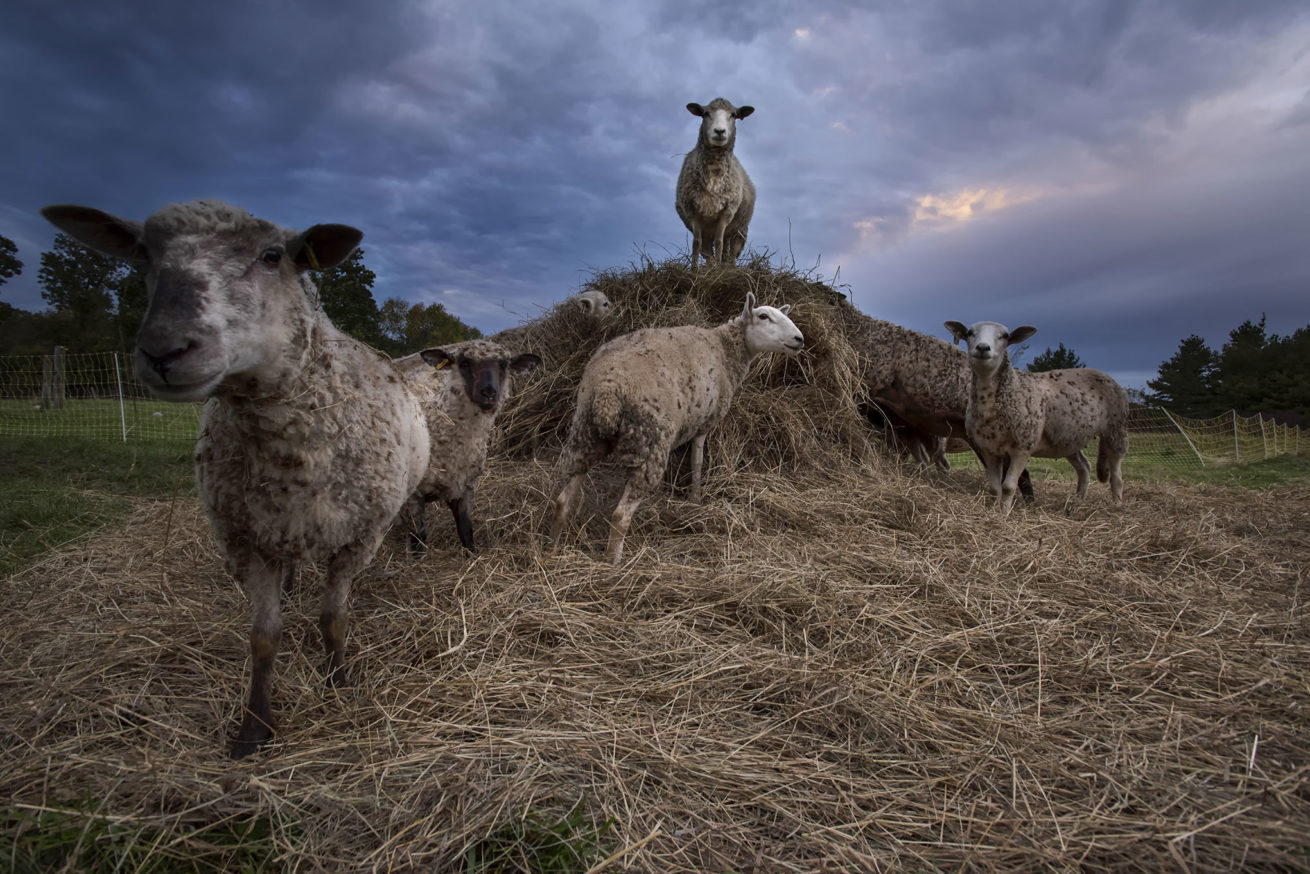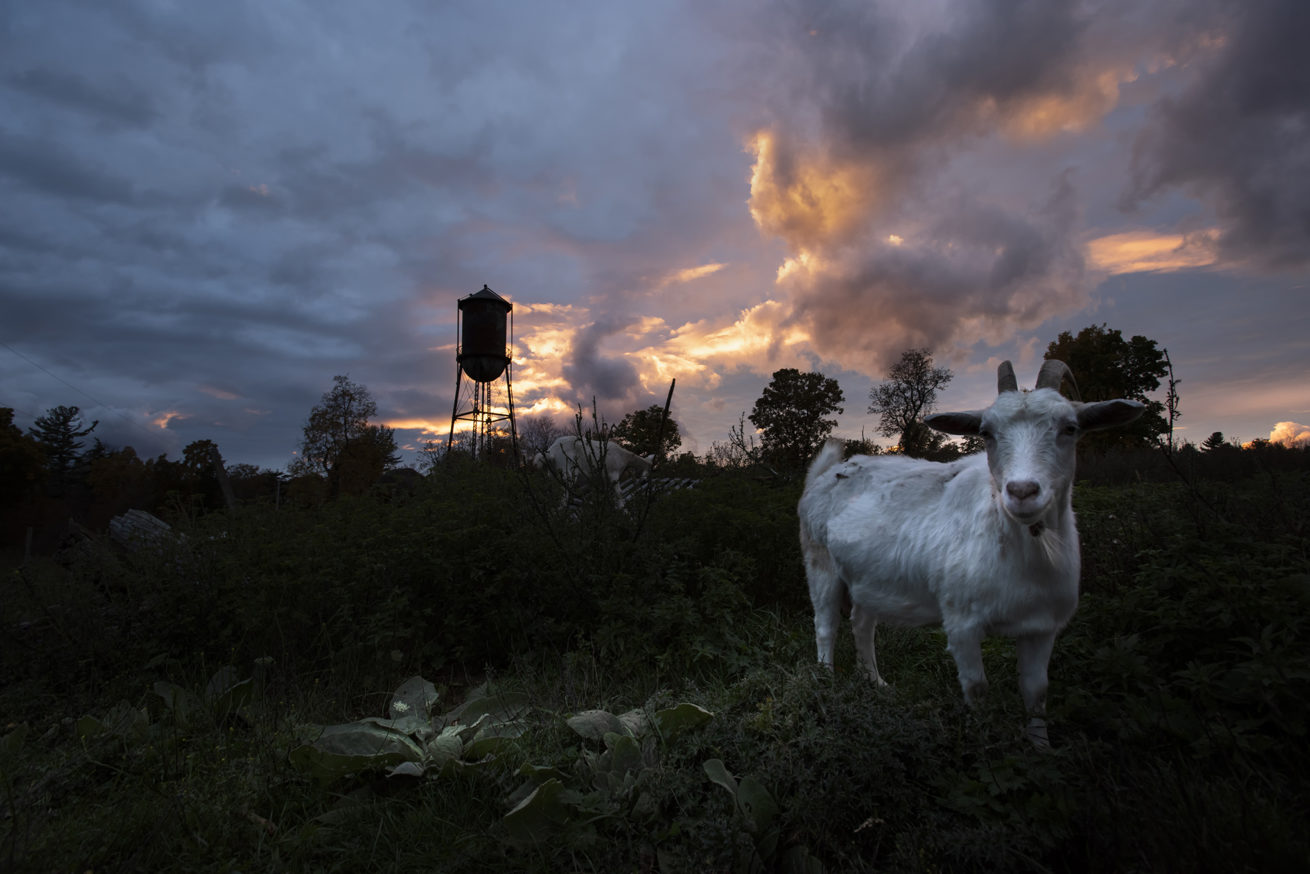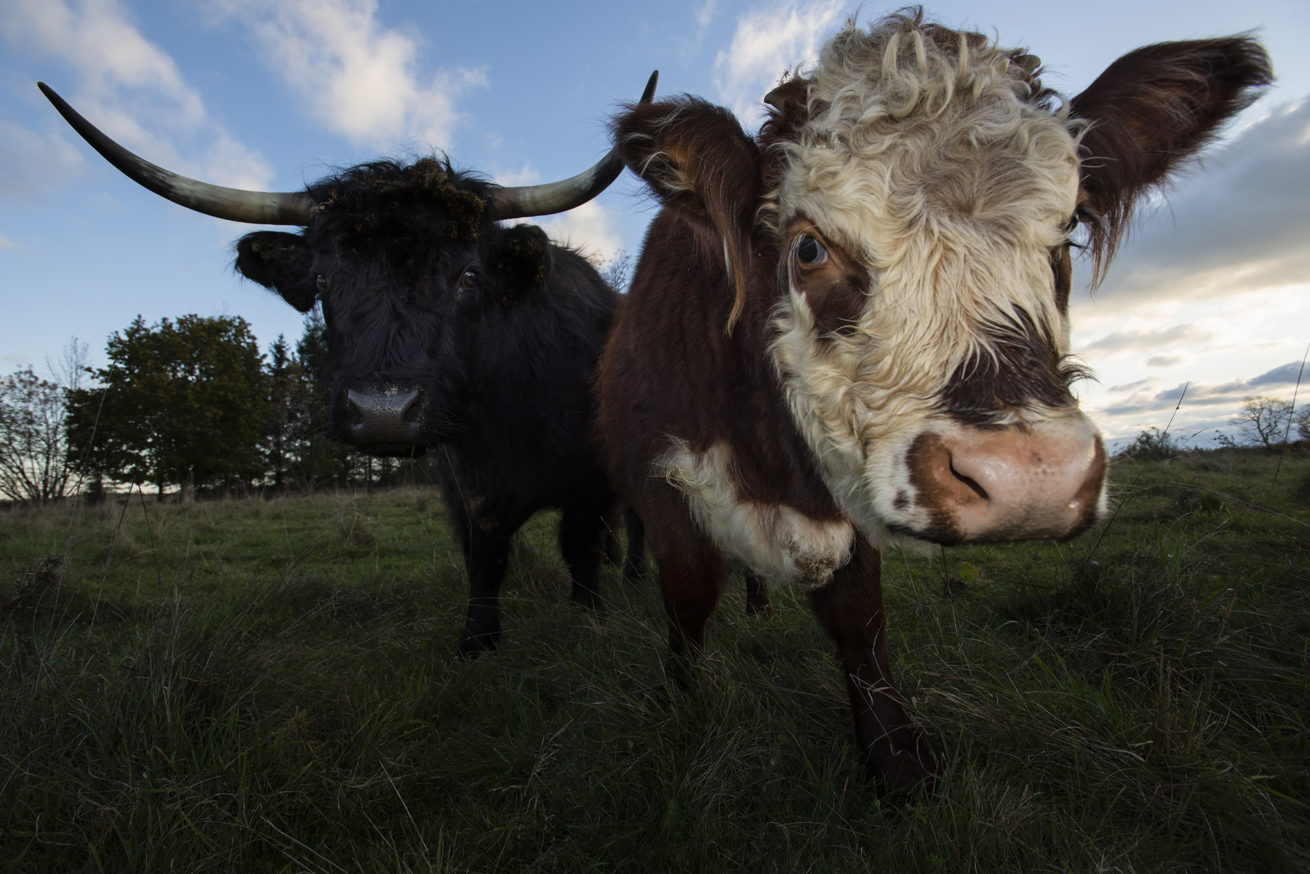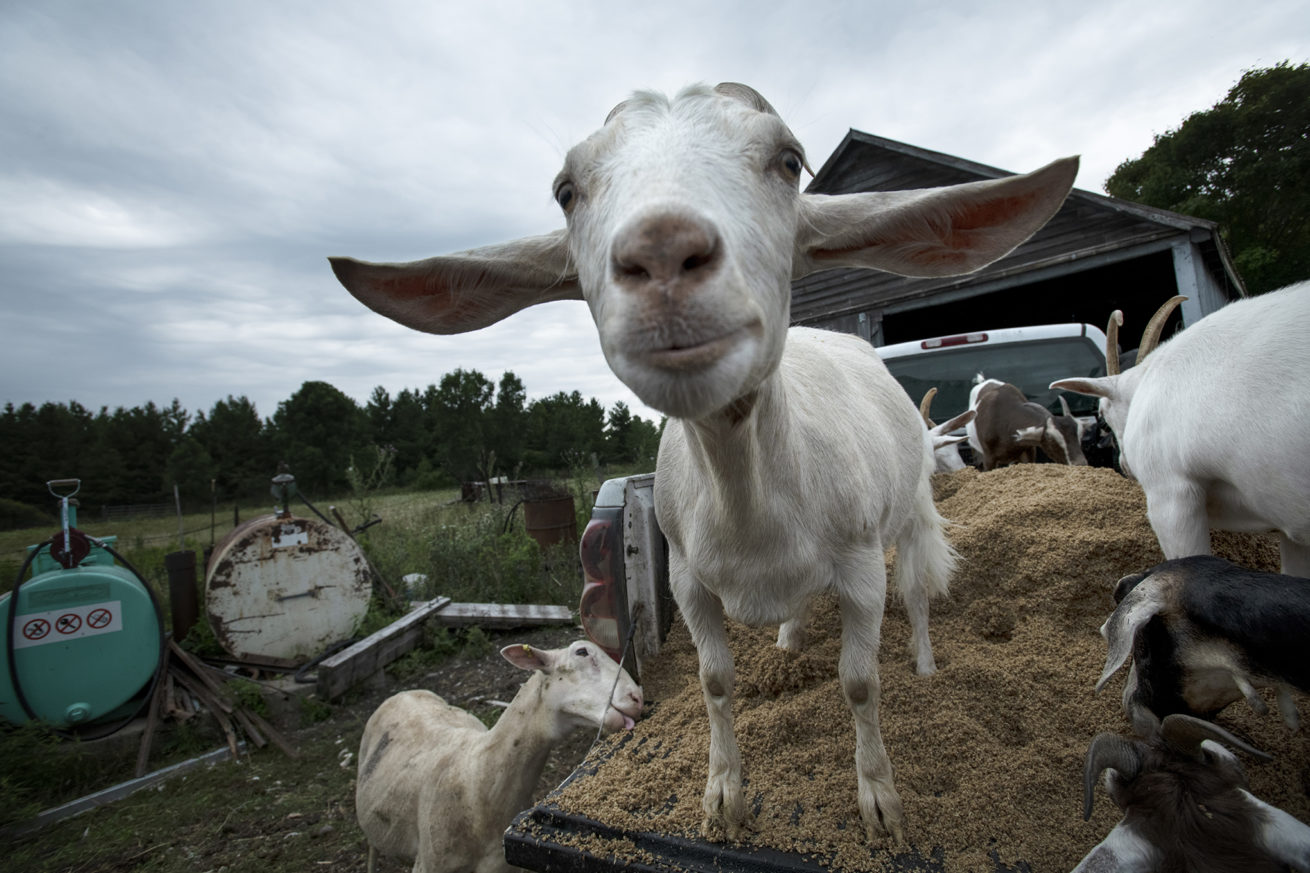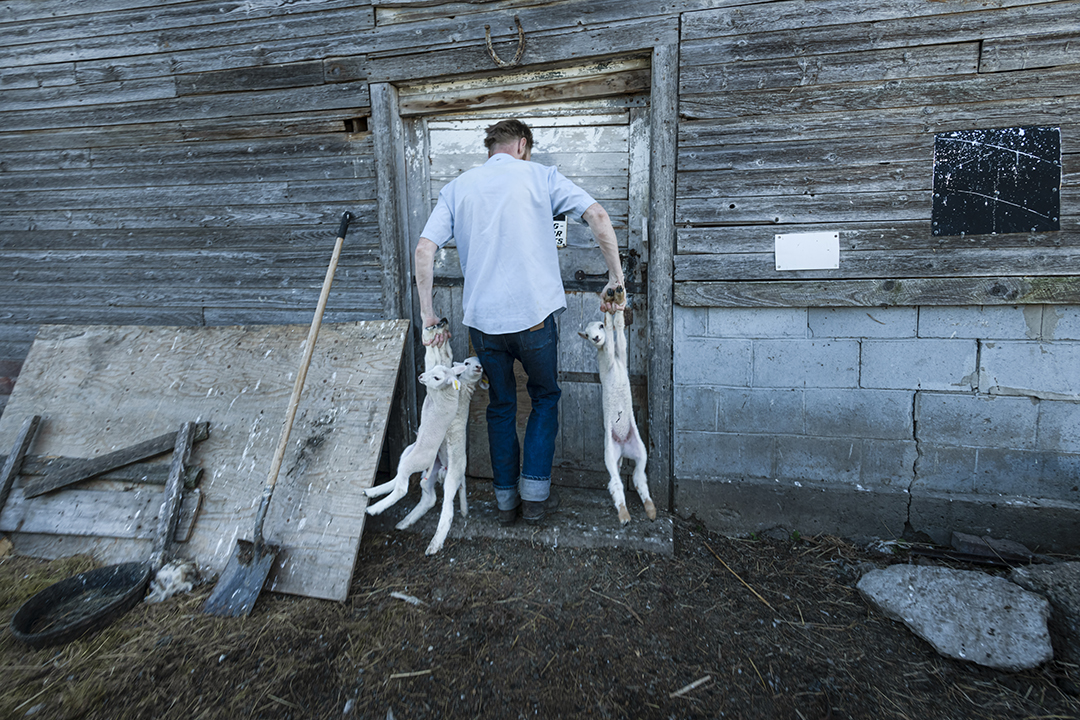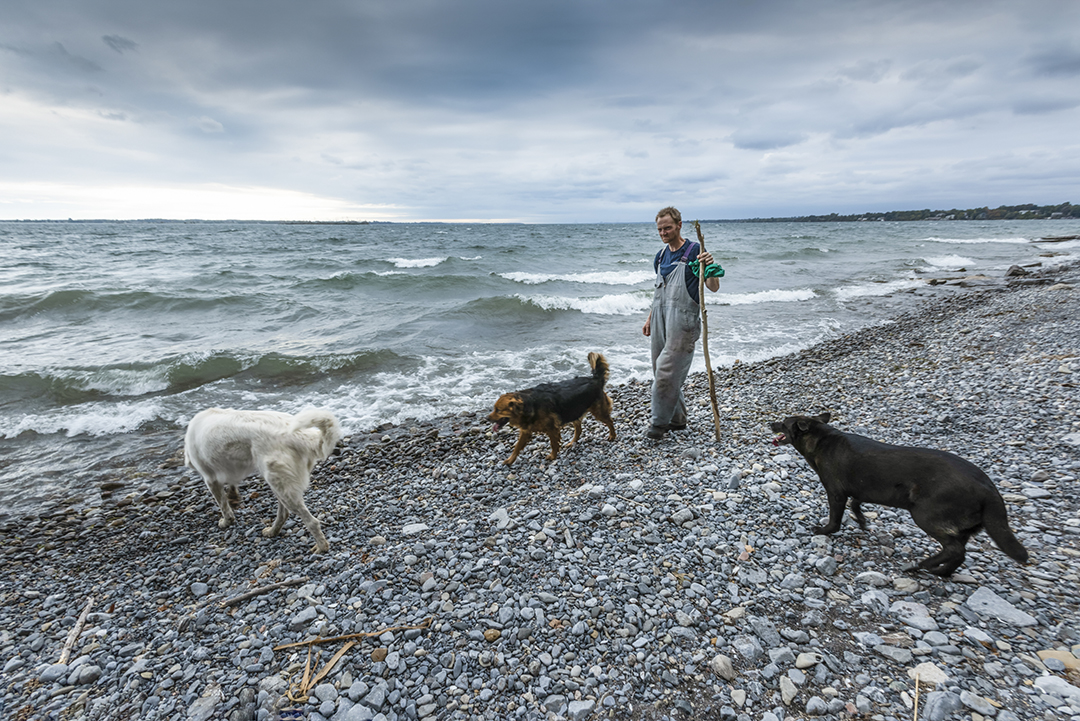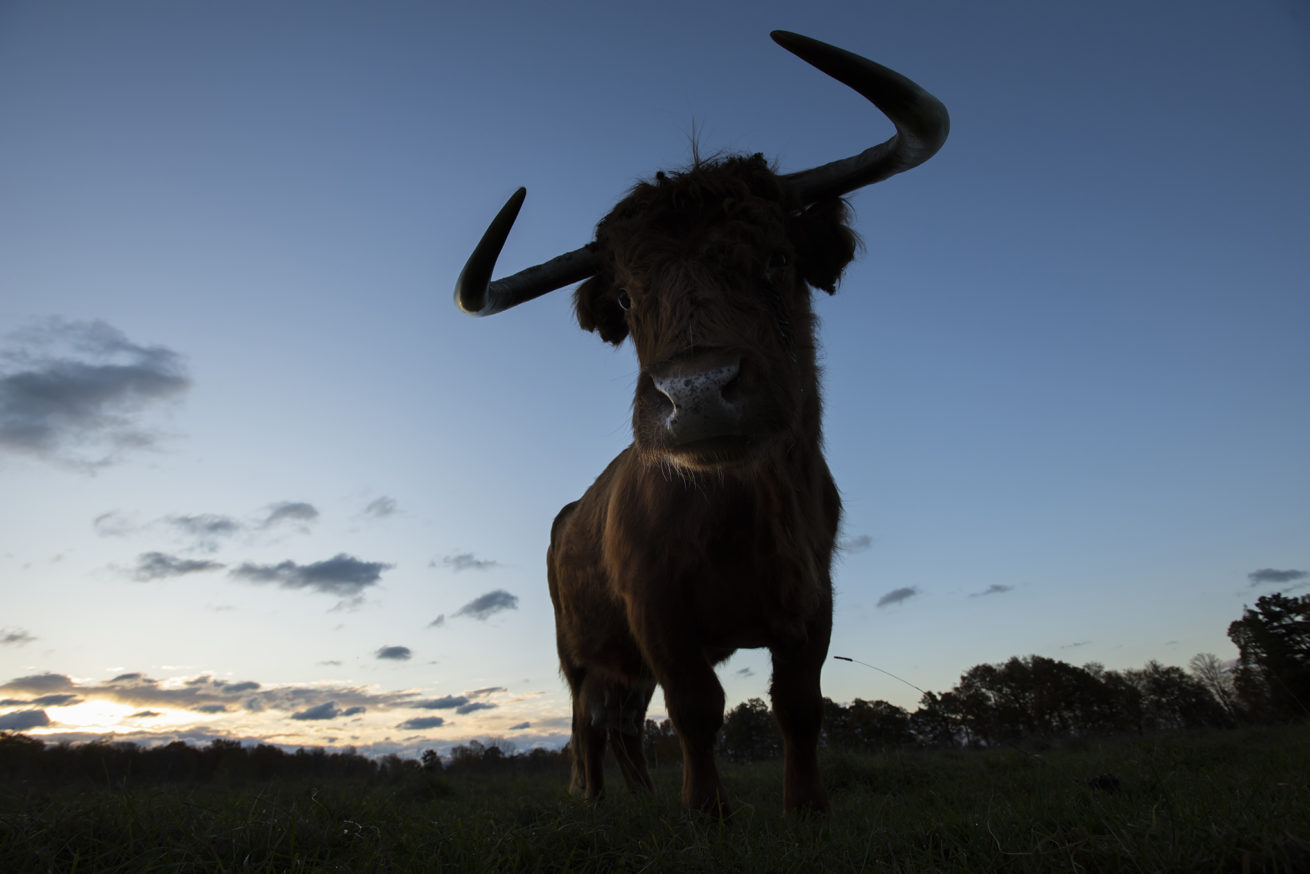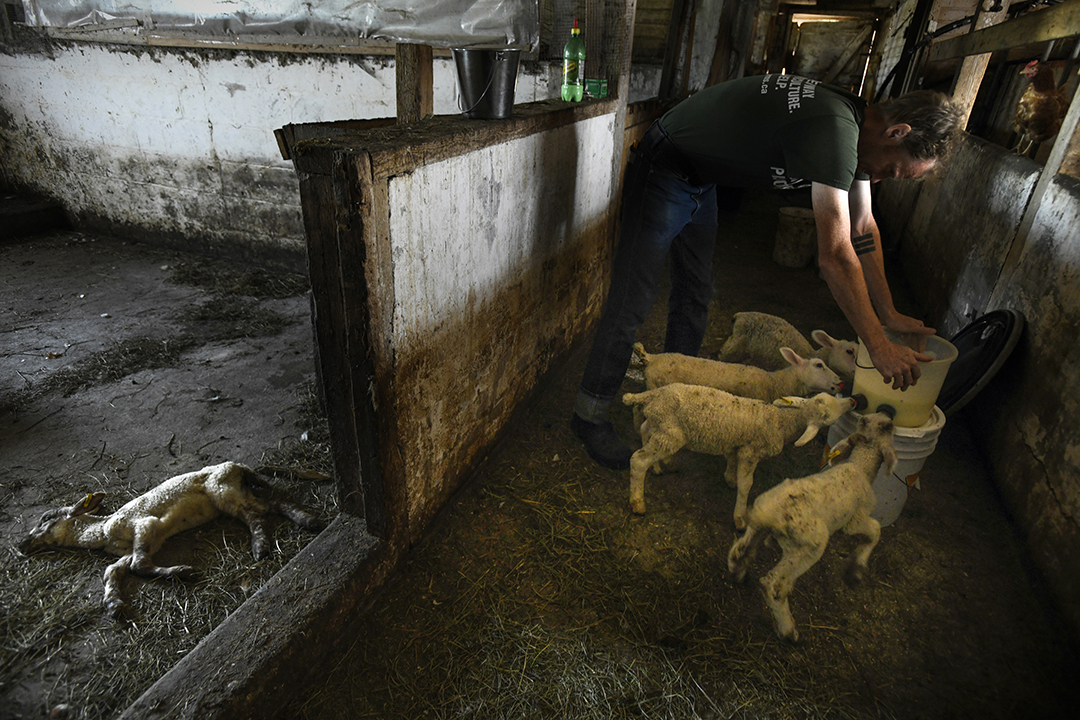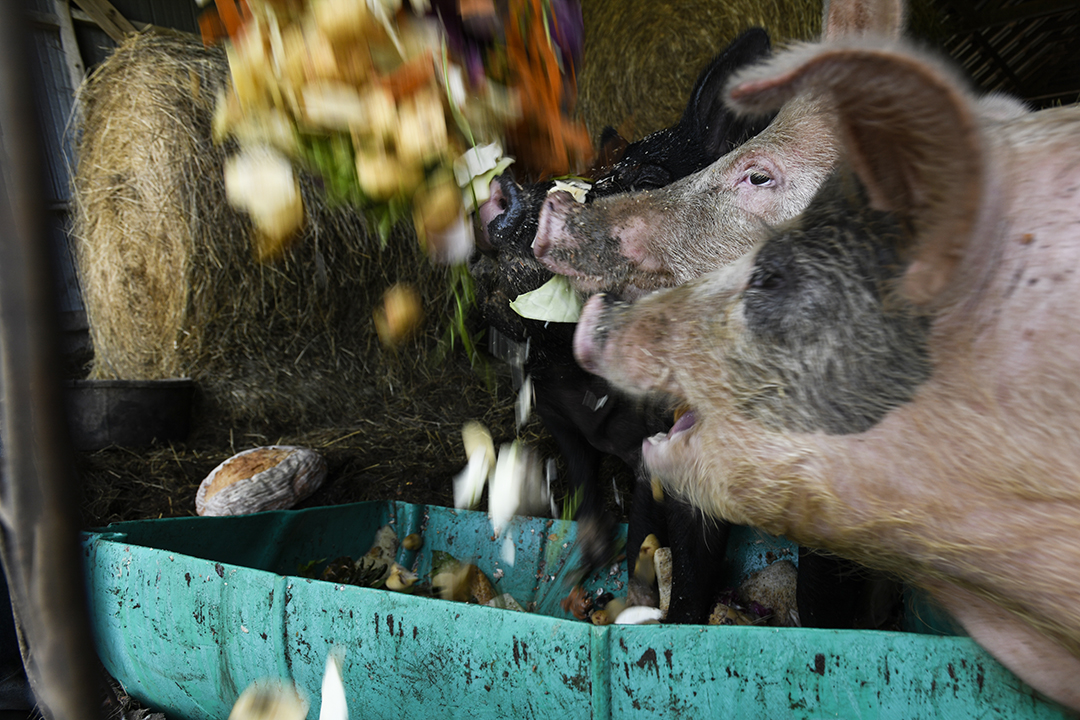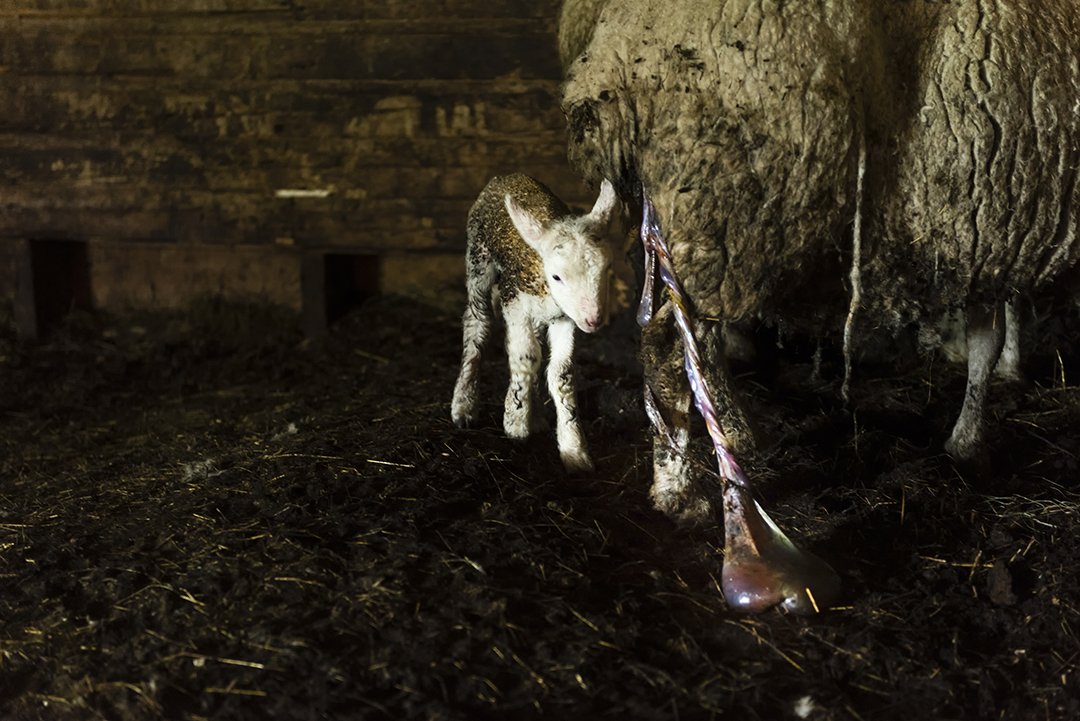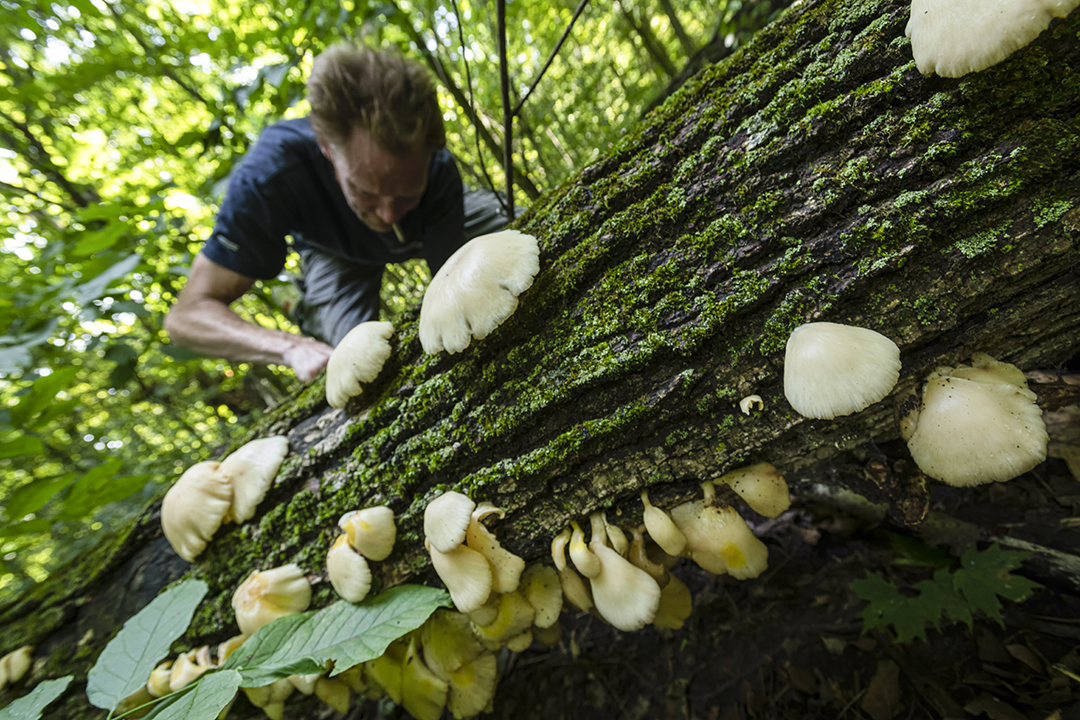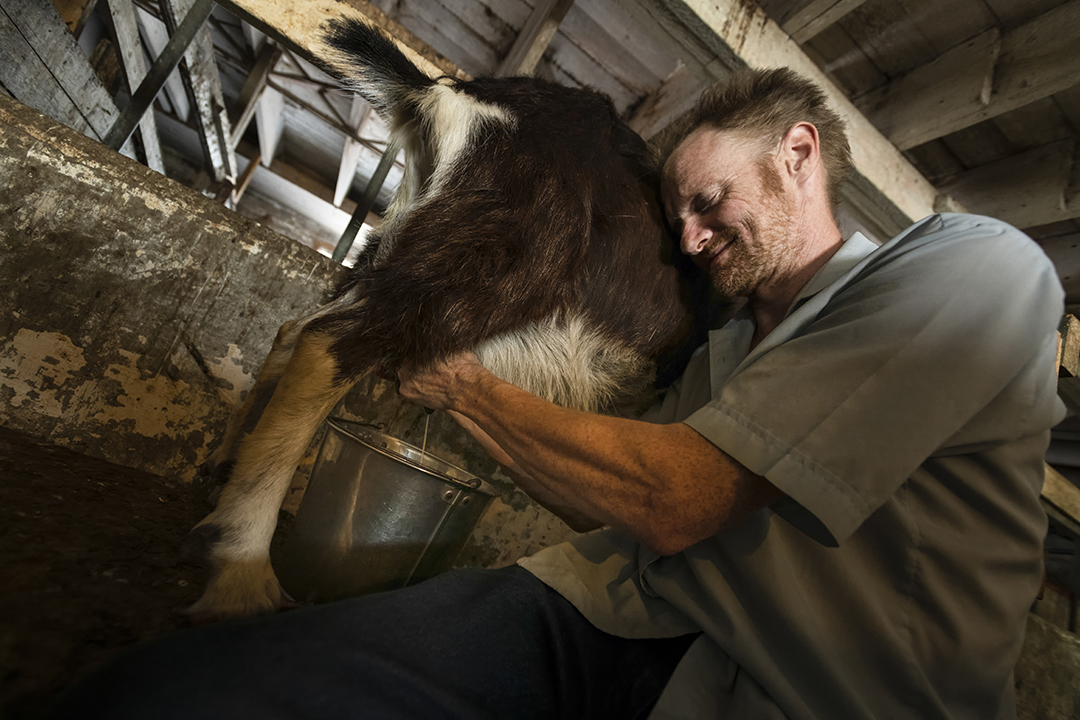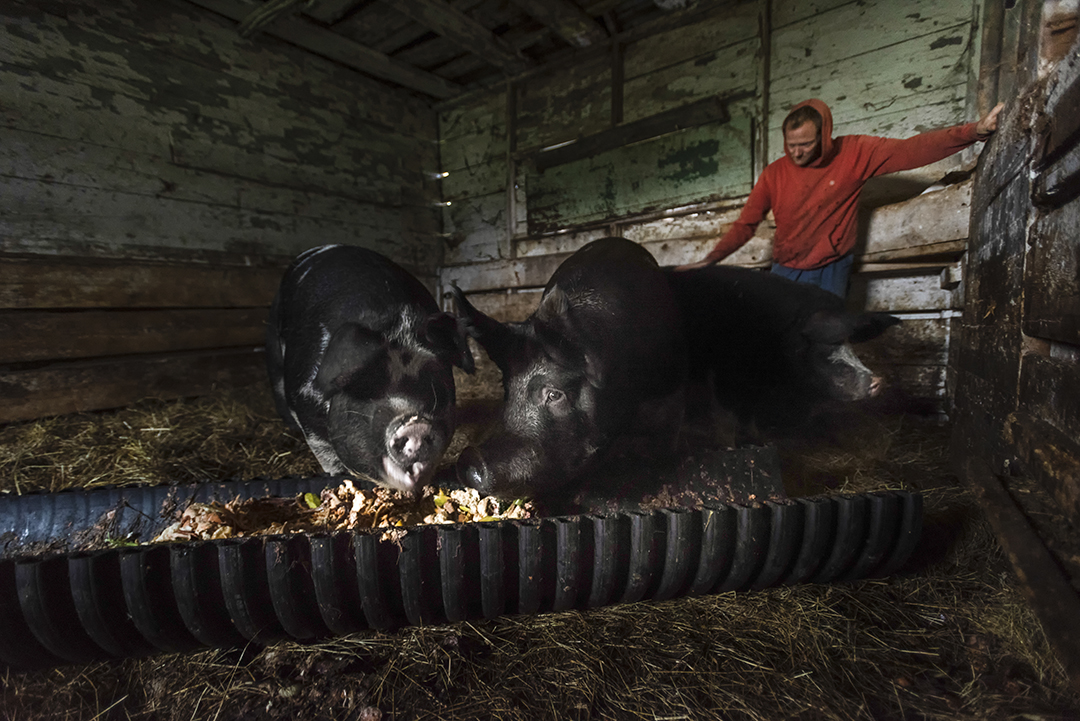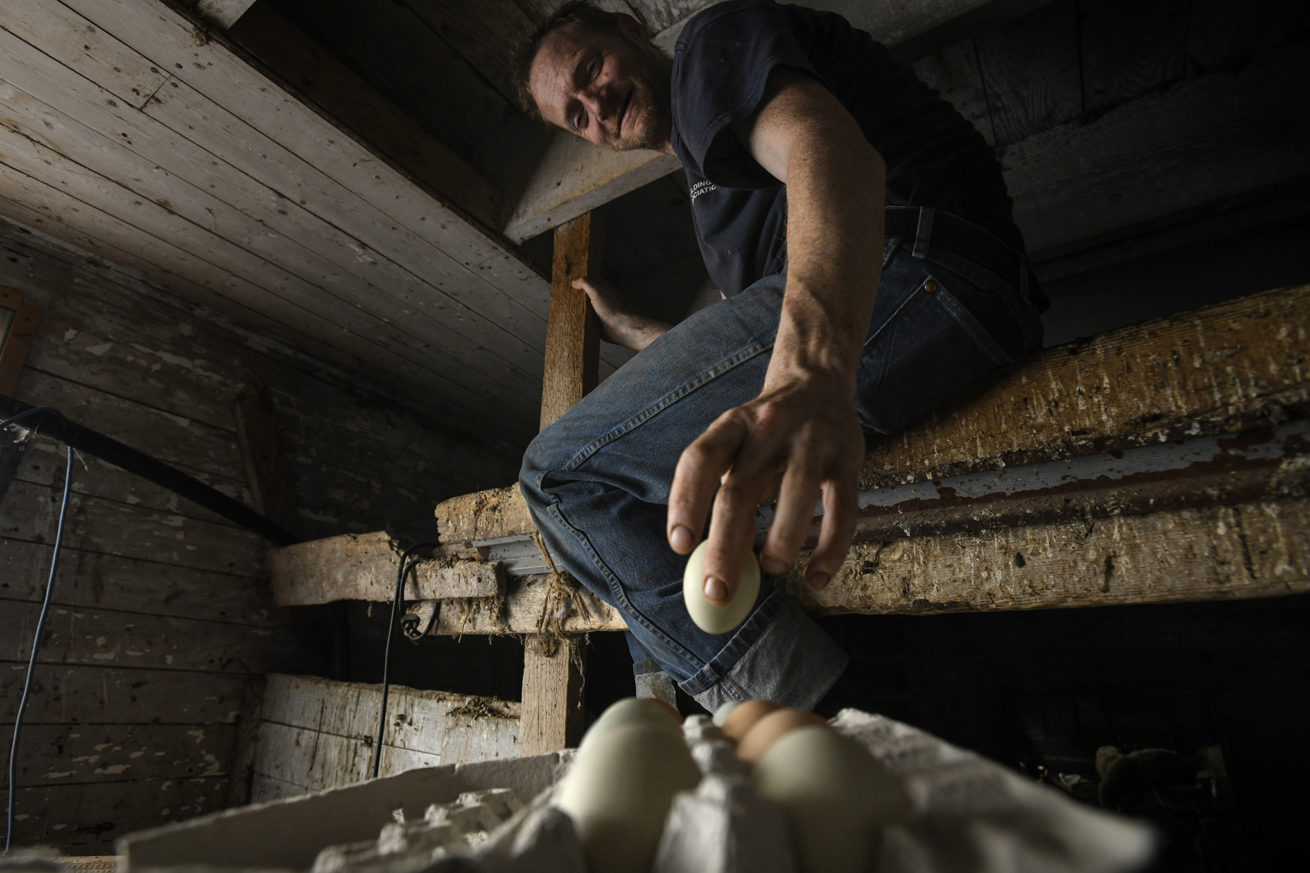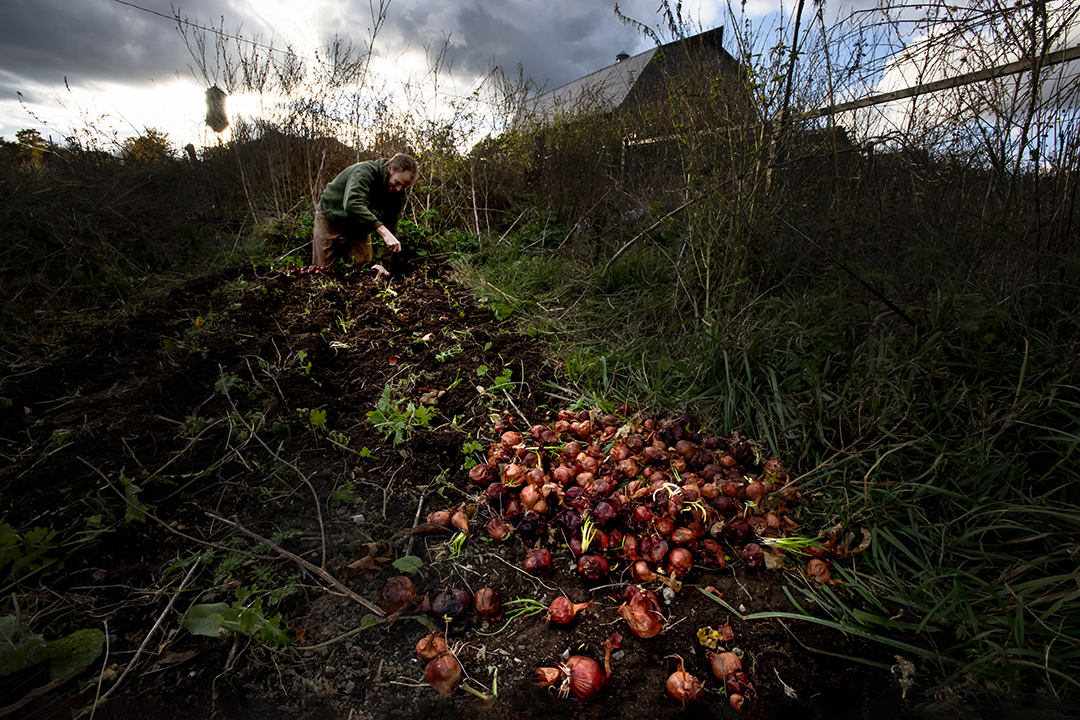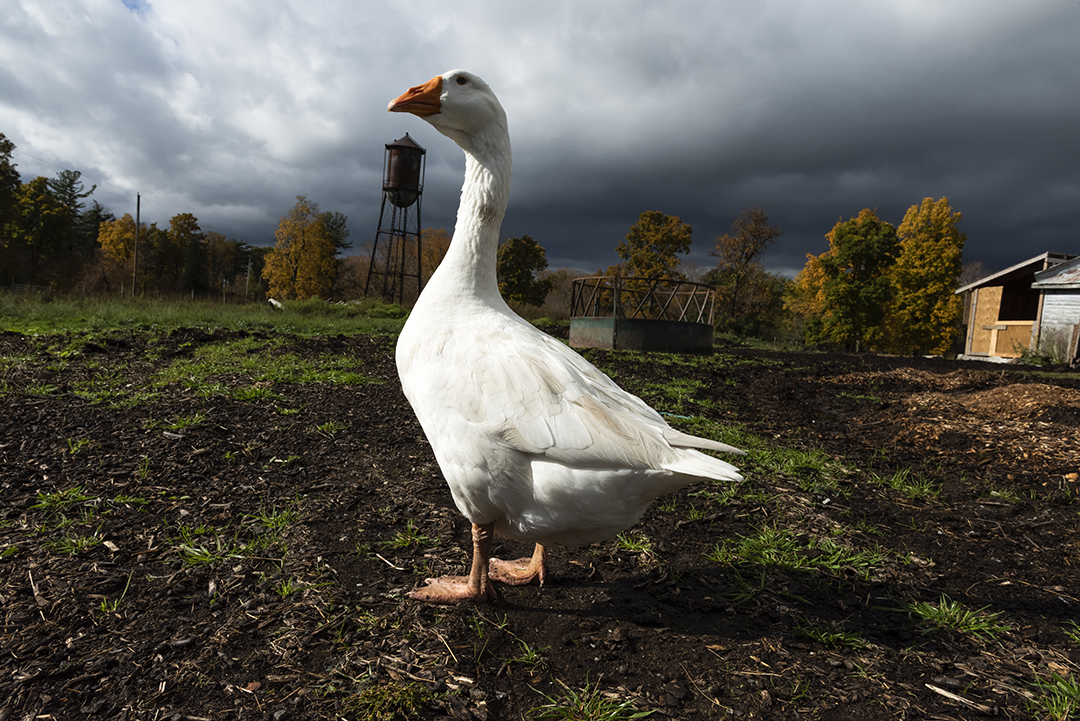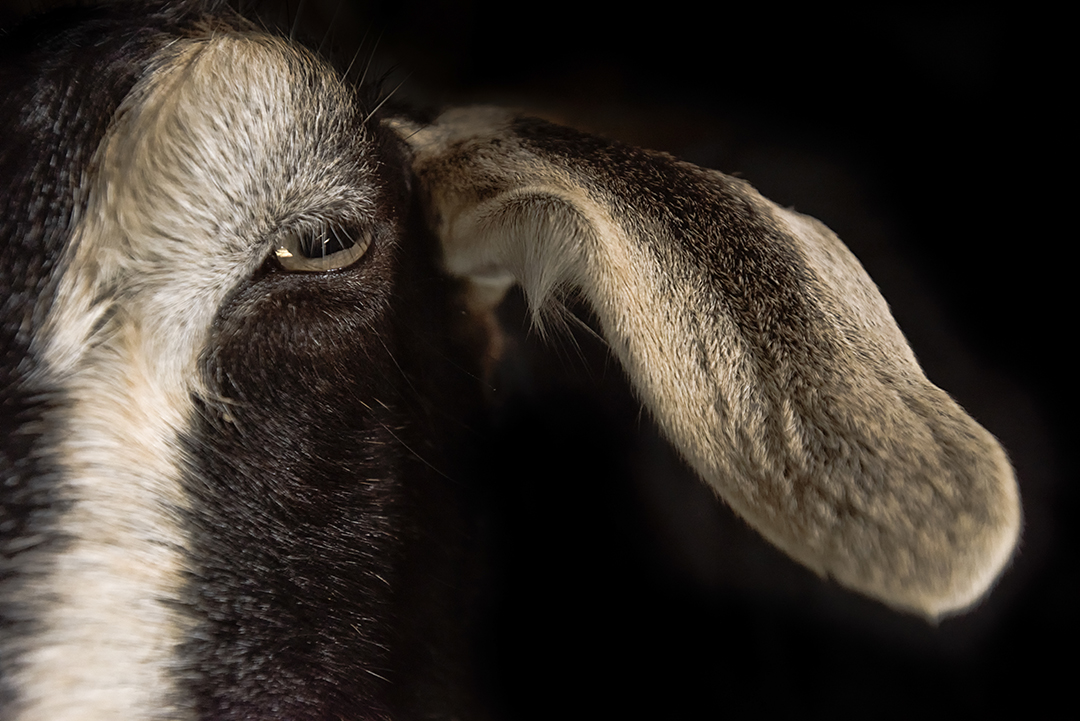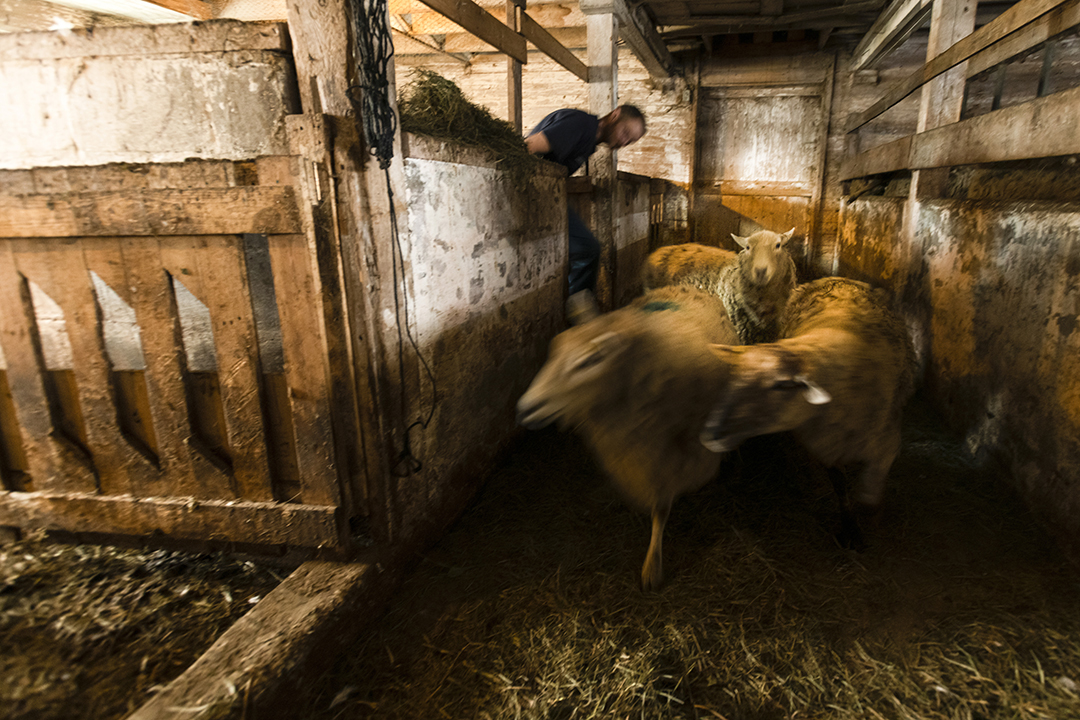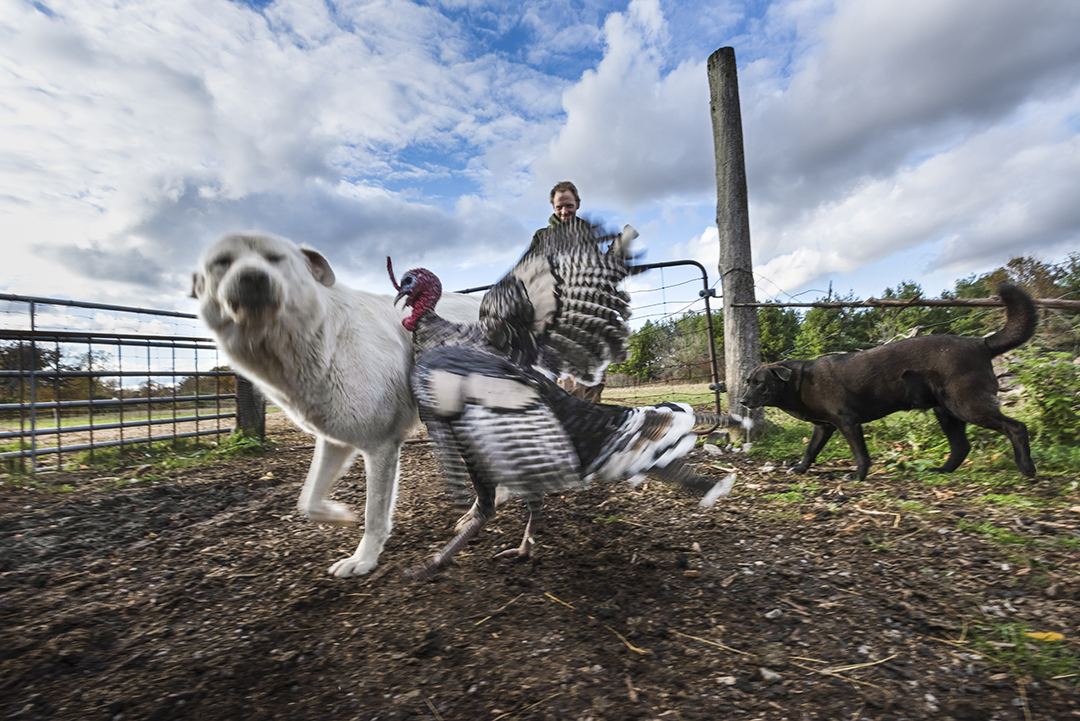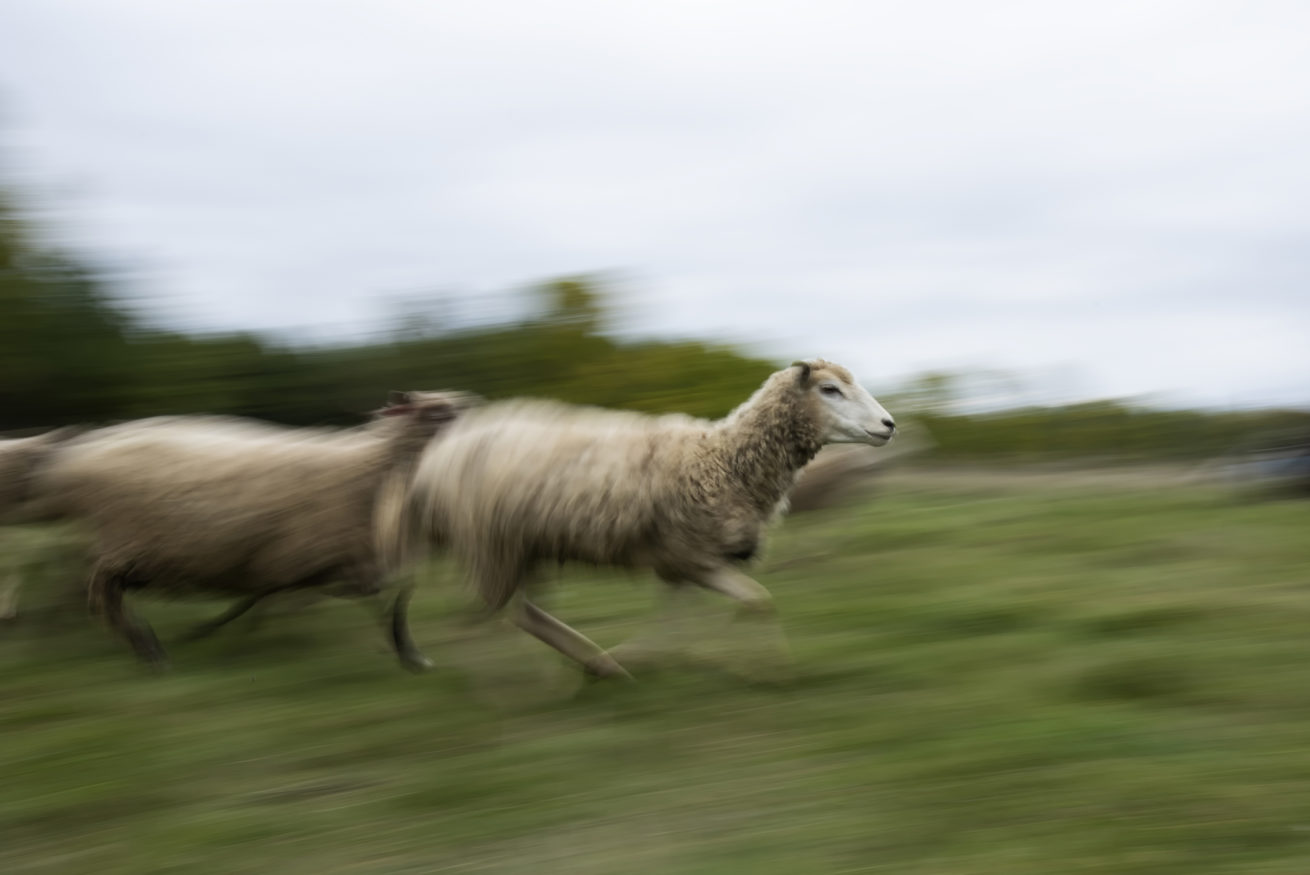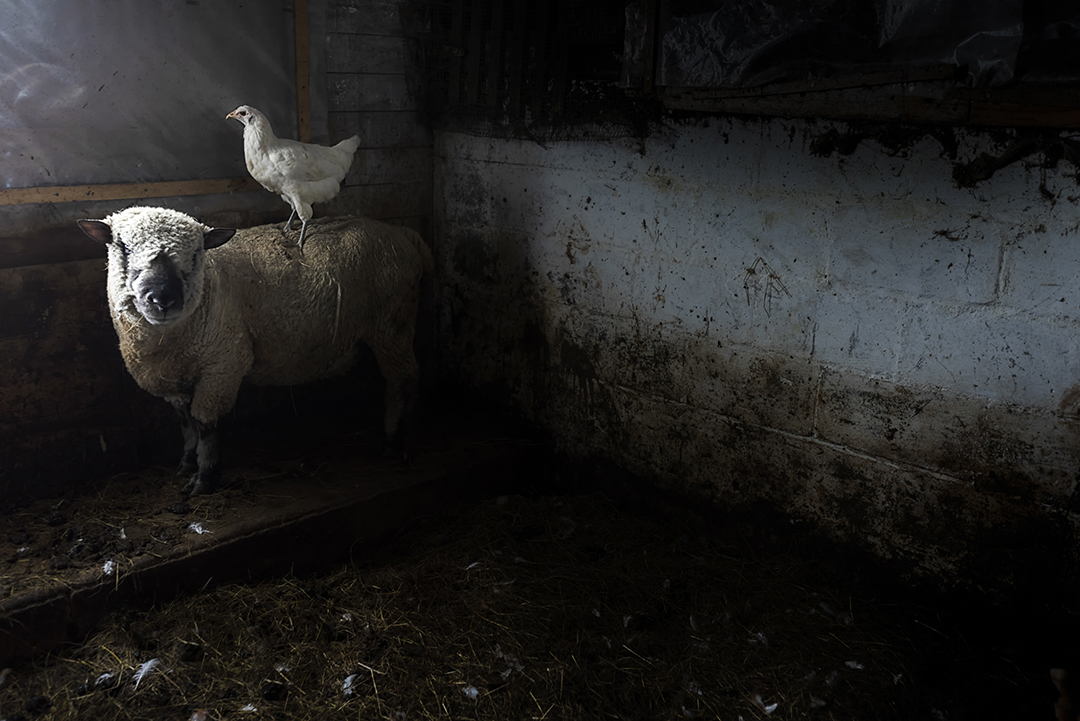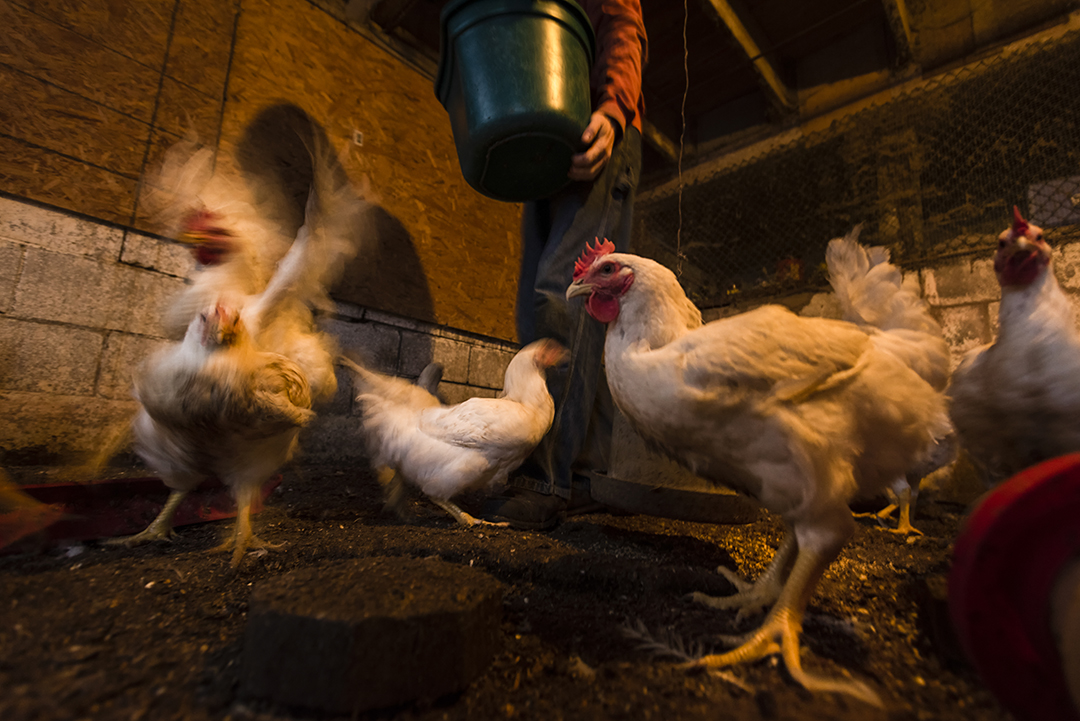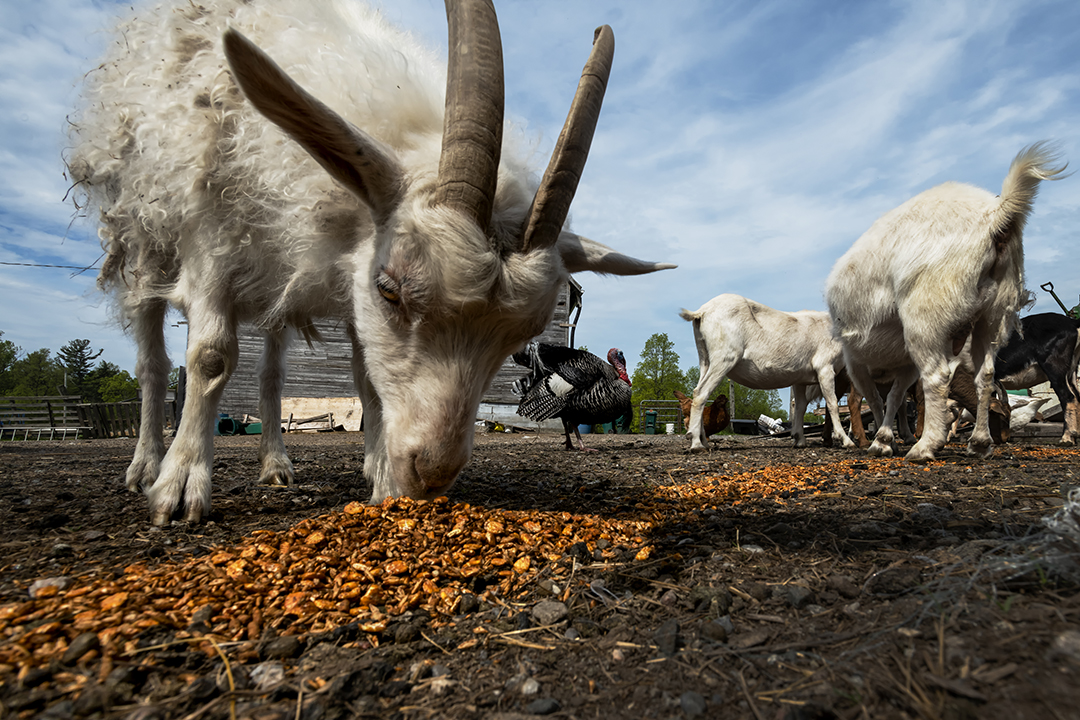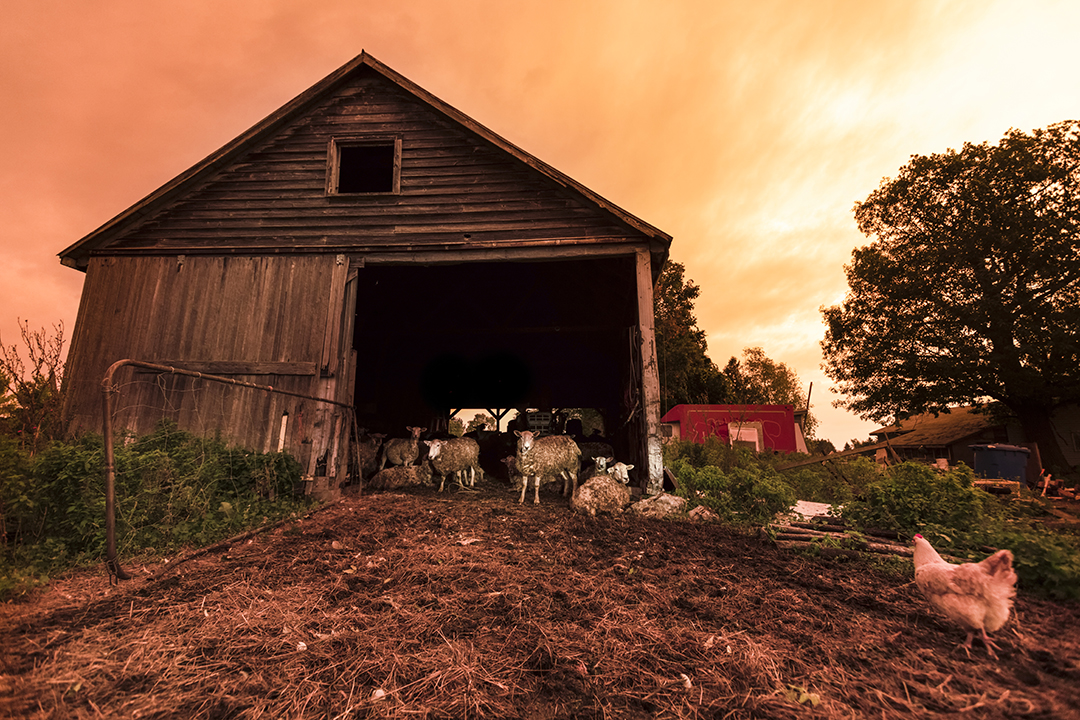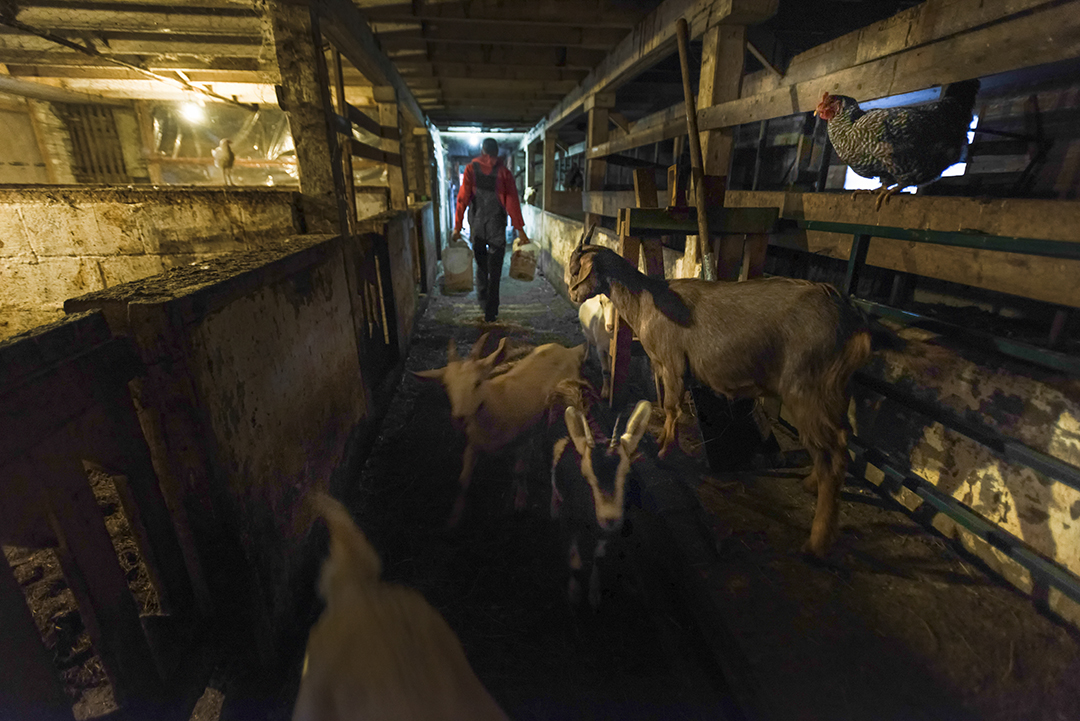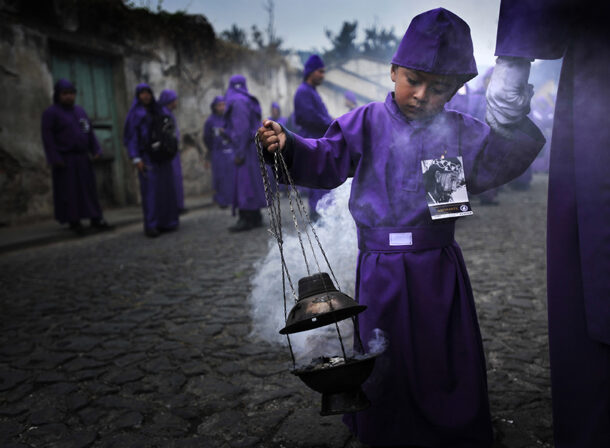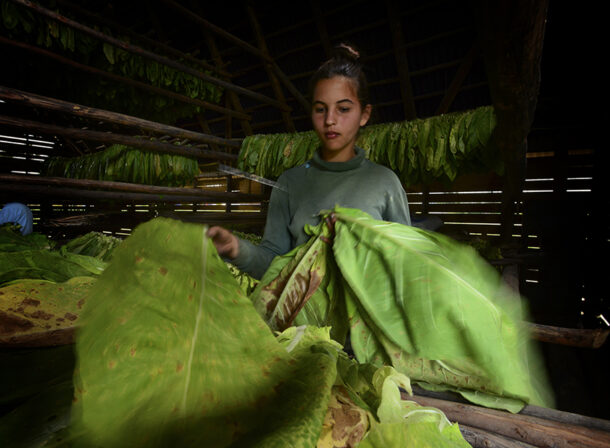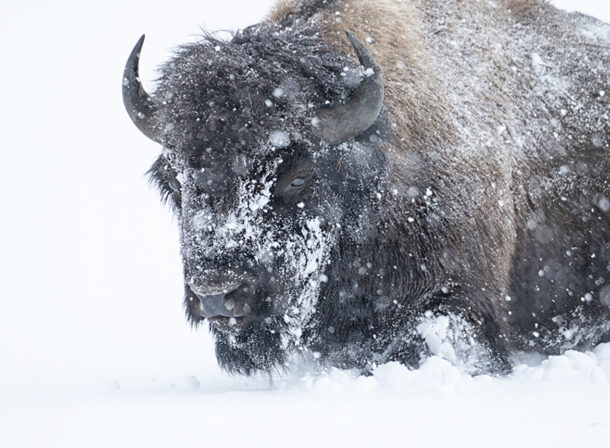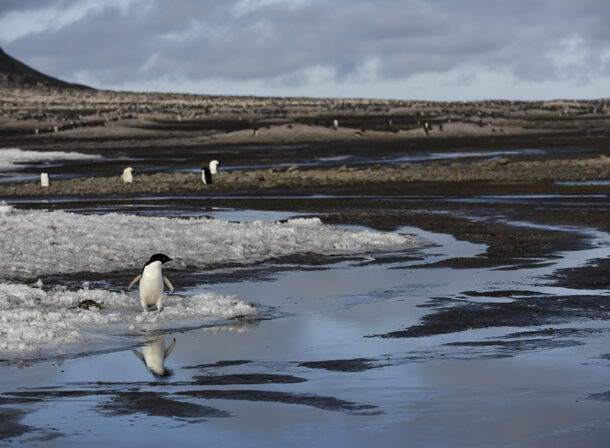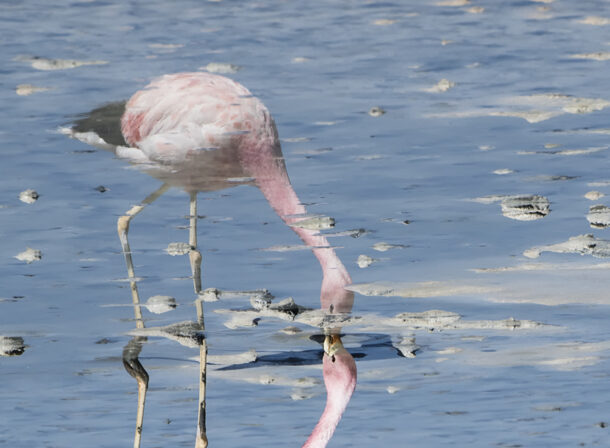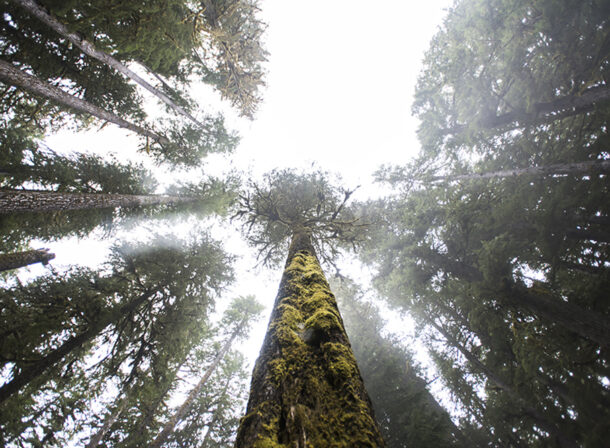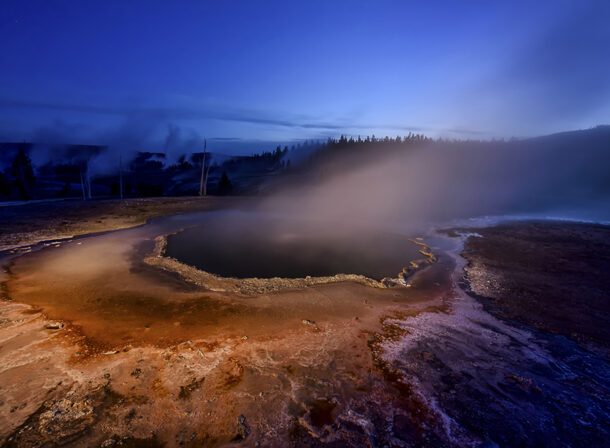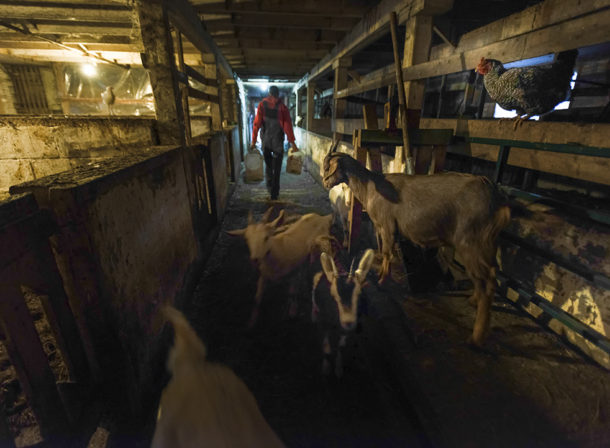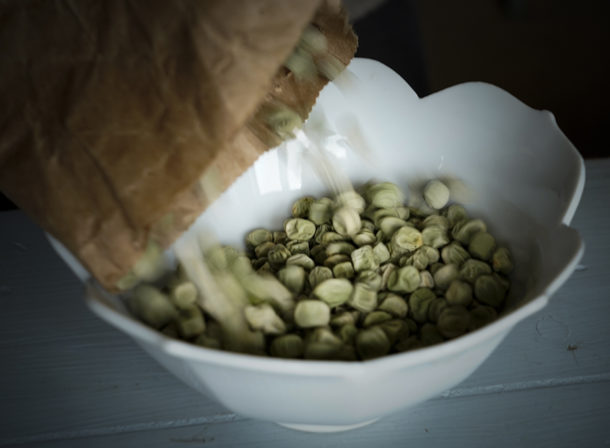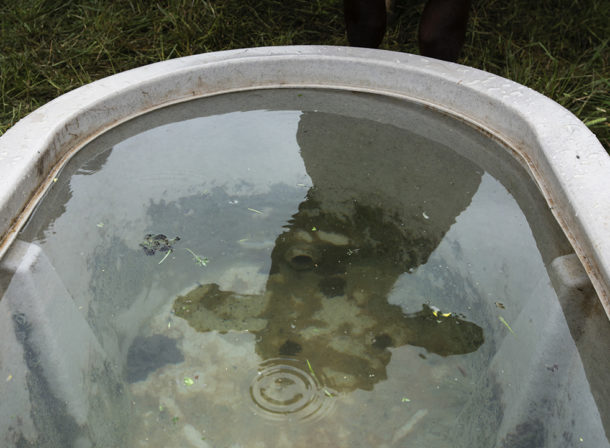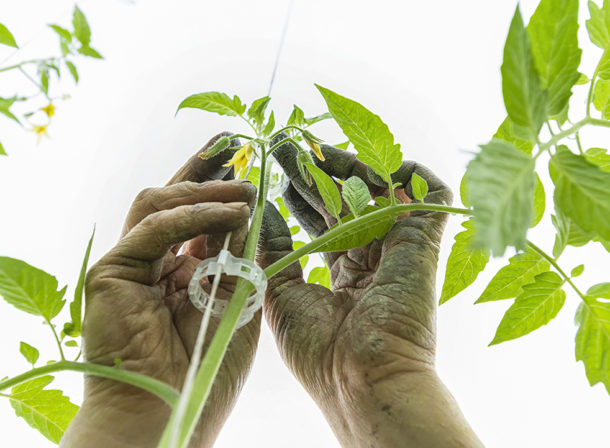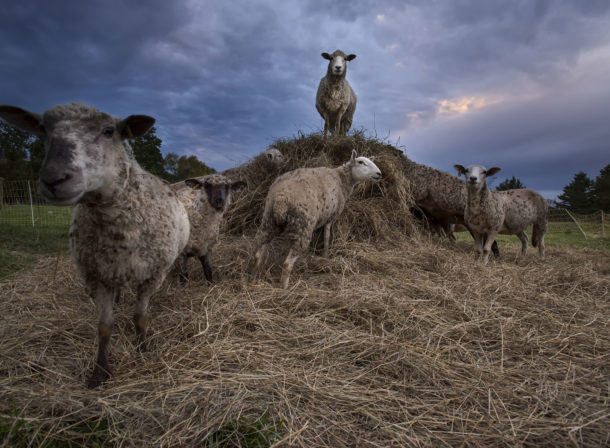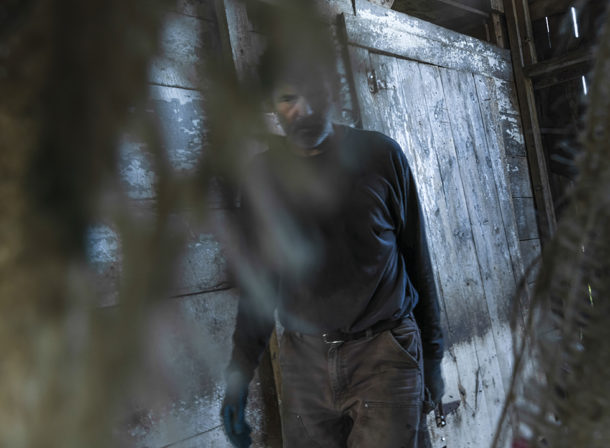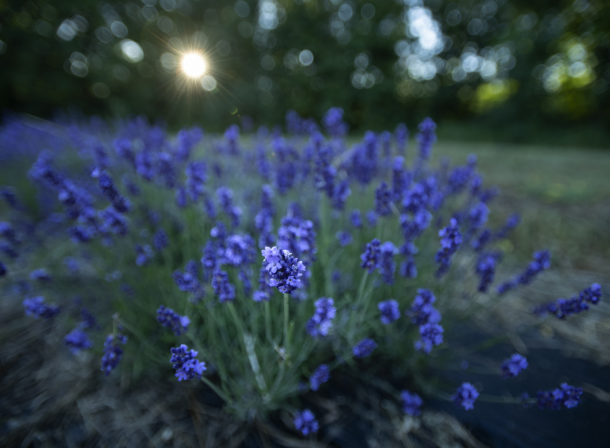“I always wanted to be a farmer,” says Jesse Archibald.
He was raised at Marble Rock, north of Gananoque, where his family and friends practiced intentional community and land-based communal living.
“Growing up in the environment that I did, being an ecologist was almost more important than being a farmer. Or at least, taking care of the land was the ideal.”
He looked up to farmers as a kid. “I grew up in rural communities, and the farmers were the cool guys, to me at least. They directed their own lives.”
But farming had economic challenges, and as Jesse became an adult, the challenges for farmers were getting worse. “In the eighties, everyone was getting out of farming. I decided to get into food,” Jesse says.
He got into the restaurant industry and also helped run a wedding rental business. It was fast-paced, high-stress way to make a living.
“Until I started farming, I lived an extremely anxious lifestyle. I thought that was just part of the work I chose.” That anxiety was hard on Jesse’s wellbeing.
“I was basically a heroin addict for 15 years.” After moving to Lemoine Point Farm, Jesse came to some realizations: that anxiety might just be part of who he is, and that farming offers enormous benefits for his mental health.
“I’m still on methadone now, and I haven’t relapsed in the time I’ve been here. Farming is a huge part of that. Until I moved here, I relapsed annually,” he says.
“There’s nothing more soothing or relaxing than working with livestock.”
Jesse hadn’t planned to work with livestock. “I always thought that I would be a grain farmer and bread baker.” Things changed after he moved to Lemoine Point Farm in 2011: “I found this place, and the land kind of dictates the kind of farming you can do. I fell in love with animals.”
Now, raising animals is his livelihood. “In the summer, I wake up with the sun. I usually start the day setting up the new sheep paddock, let them onto fresh grass.” The animals get fed before Jesse does.
“In the winter, I wake up at 5:30 or 6:00 a.m. When we’re expecting goat kids, I go out and check on them, and the sheep. The cows stay out year-round.”
Jesse collects eggs, and makes sure that all of the poultry and pigs are fed. He feeds the pigs with uneaten food waste from Chez Piggy and Pan Chancho (two popular Kingston restaurants), and food waste from a couple of breweries.
Jesse doesn’t buy any feed for his pigs—it’s all food that would otherwise go to waste. That’s one of the things he does to make his farm sustainable. “Almost everything I use is recycled.”
He also uses a system of rotational grazing for the animals, and composts manure to return fertility to the land. He uses his tractor as little as possible. He doesn’t use synthetic pesticides or fertilizers.
And he encourages biodiversity on the farm. “I let tall thistle plants grow around the garden; they really attract birds to help with insect control. There are massive numbers of little birds.”
Jesse’s biggest challenges on the farm? Unpredictability of the weather, and difficulty getting paid labour to help.
“Having been in the labour game as a manager and employer prior to my farming career, I’m not interested in having low-wage employees. But to be able to pay people what they are worth is difficult.”
He doesn’t see easy answers to the labour problem, but wants to see small farms working together to pool resources and find solutions. “We need to make farming communities stronger.”
On his own farm, Jesse hopes to nail down a rotational grazing plan that he can use over the next five years. And he plans to keep donating a lot of the food he produces to meal programs to make sustainable local food more accessible.
“I donate at least $5,000 of meat a year to Martha’s Table. I can’t see why I wouldn’t continue to do that.” It bothers Jesse that organic and local food is most accessible to wealthier people. “I would like to find more ways to come up with a more just food system.”
The life Jesse lives now—with deep care for the land and for his community—is an affirmation of his roots.
“From very young age, I had a land ethic. I was taught that the land was here to take care of for the next people coming,” says Jesse. “That has been a strong part of my existence and actions.”
“Farming in this way is the most revolutionary thing we can do in this day and age.”


